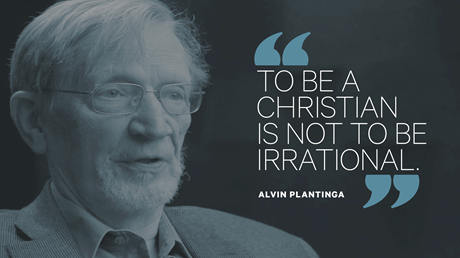The professor, scholar, and 2017 Templeton Prize winner reflects on over 50 years of defending the reasonableness of theism.

If today’s academic philosophers see Christian belief as intellectually viable, it may very well be because Alvin Plantinga showed them it was. For the last five decades, Plantinga has made a career of demonstrating that philosophy and faith need not be mutually exclusive pursuits. Through influential works such as God and Other Mindsand Warranted Christian Belief, he not only helped to restore theism’s legitimacy within the philosophical community, but also showed how religious belief may actually provide the foundation for the answers to philosophy’s most pressing questions.
Earlier this year, Plantinga was awarded the prestigious Templeton Prize, an award given every year to a living individual who “has made an exceptional contribution to affirming life's spiritual dimension, whether through insight, discovery, or practical works.” (Past recipients include Mother Theresa, Billy Graham, the Dalai Lama, and Desmond Tutu.)
When Plantinga was in Chicago for the Templeton ceremony in September, he sat down to talk with CT editor Richard Clark about what drew him to philosophy, what it’s like to work in such a traditionally secular field, and why he thinks believers and philosophers alike can benefit from a better understanding of his discipline’s Christian past.
Click the “play” button above to listen in.
On philosophy and the Church: “Certain kinds of evangelical Christians thought philosophy was a bad idea. They thought it involved questioning the faith. Lots of people don’t realize that philosophy comes in many varieties. Some kinds are atheistic—but there’s Christian philosophy, too, and has been since the first or second century. Philosophy …
Source: Christianity Today Most Read